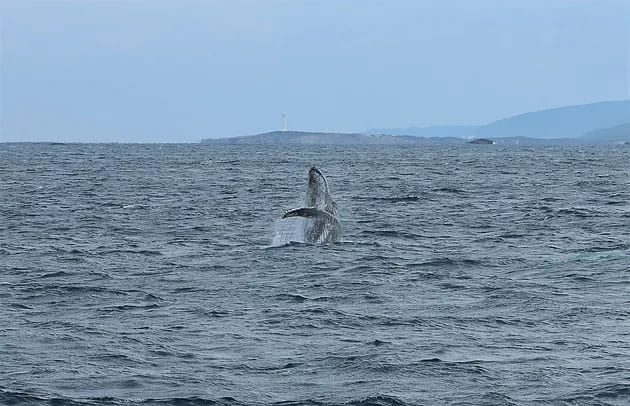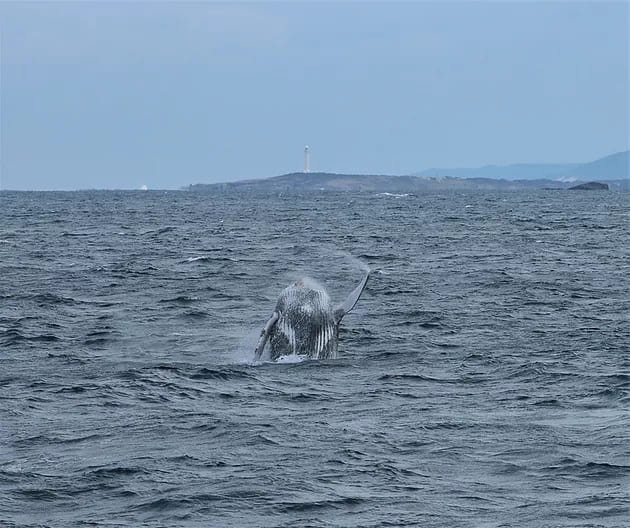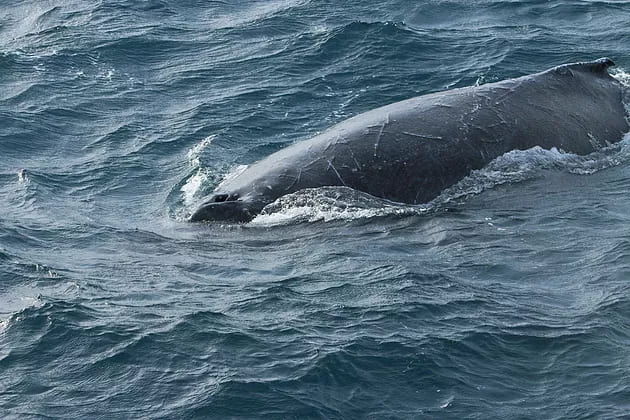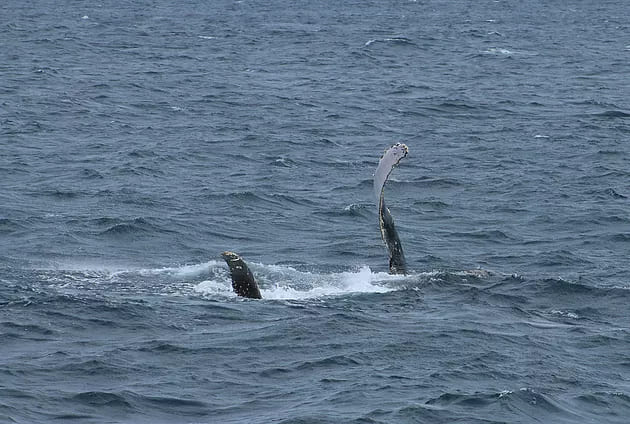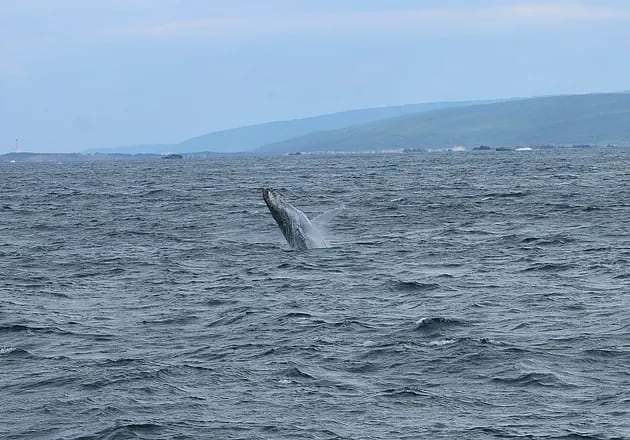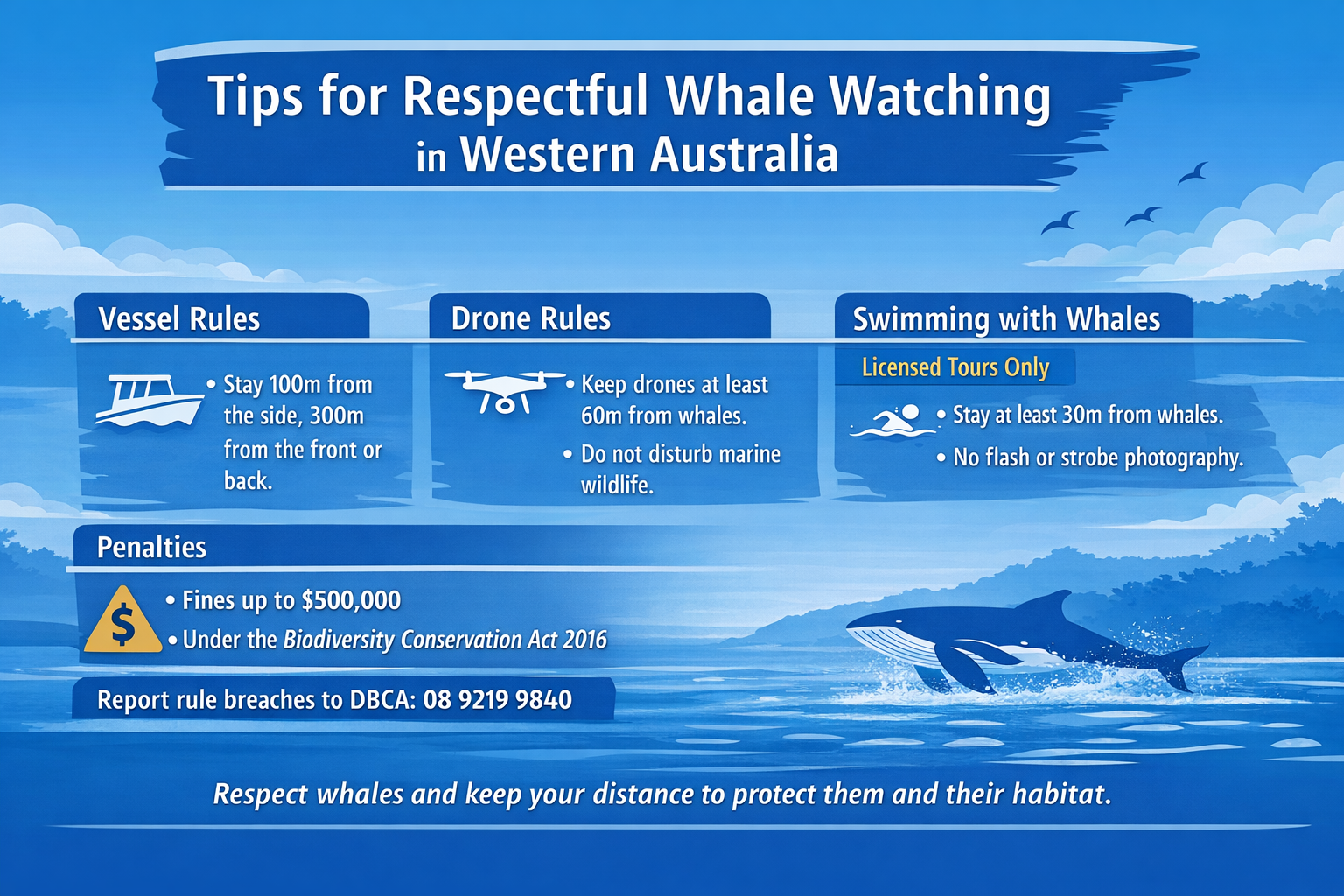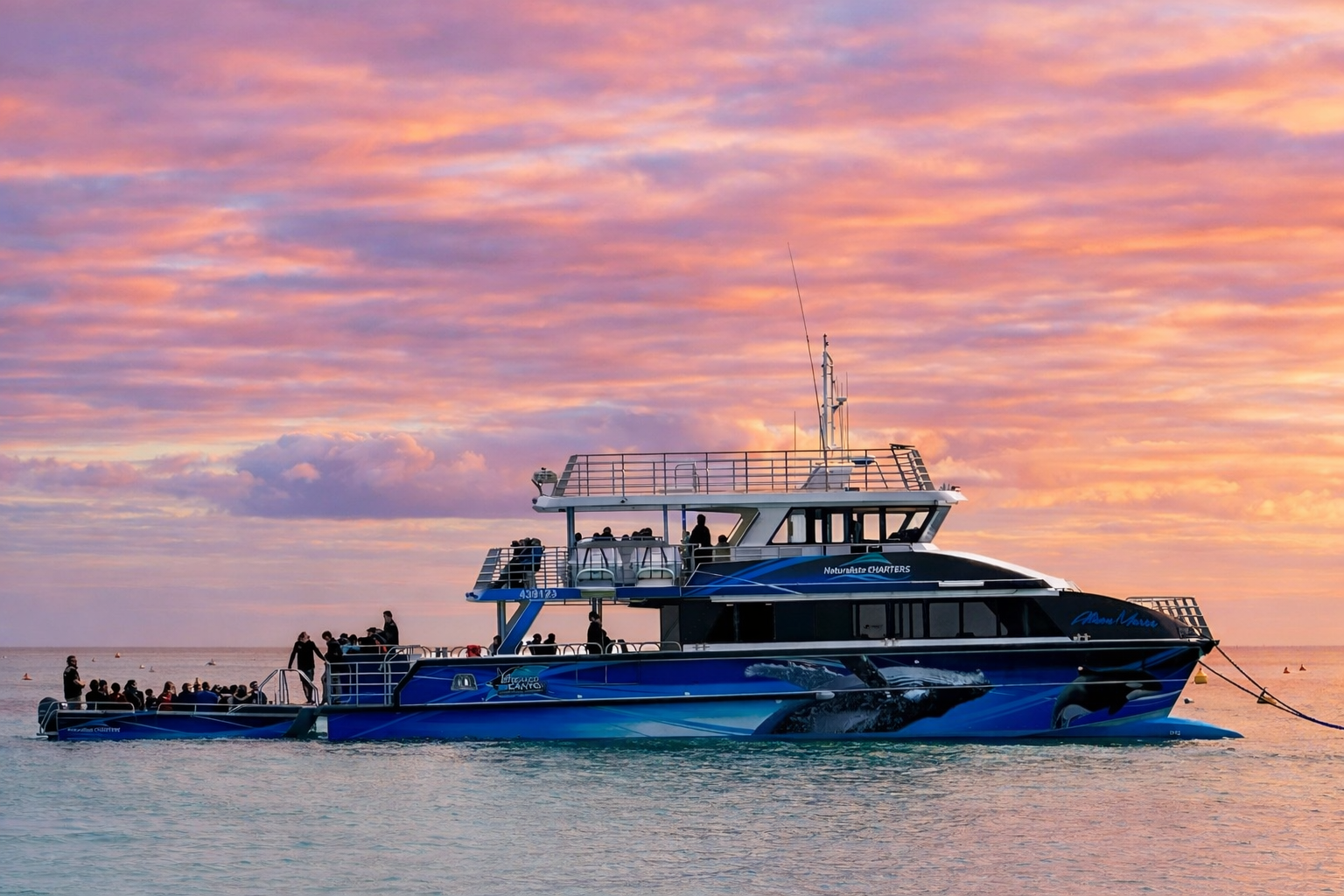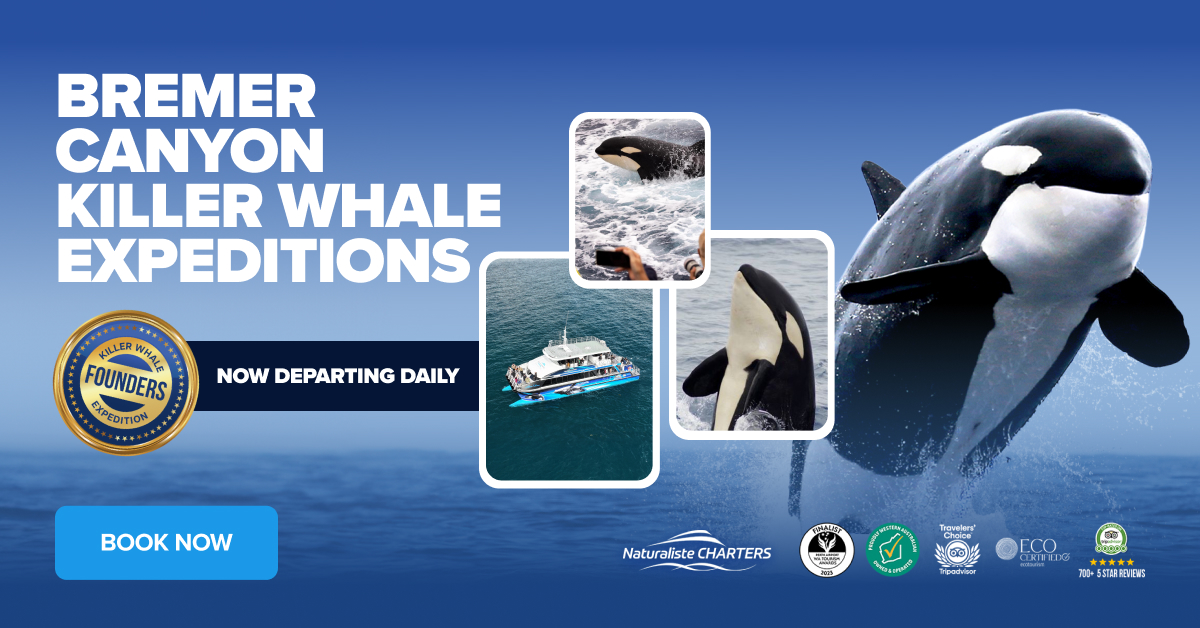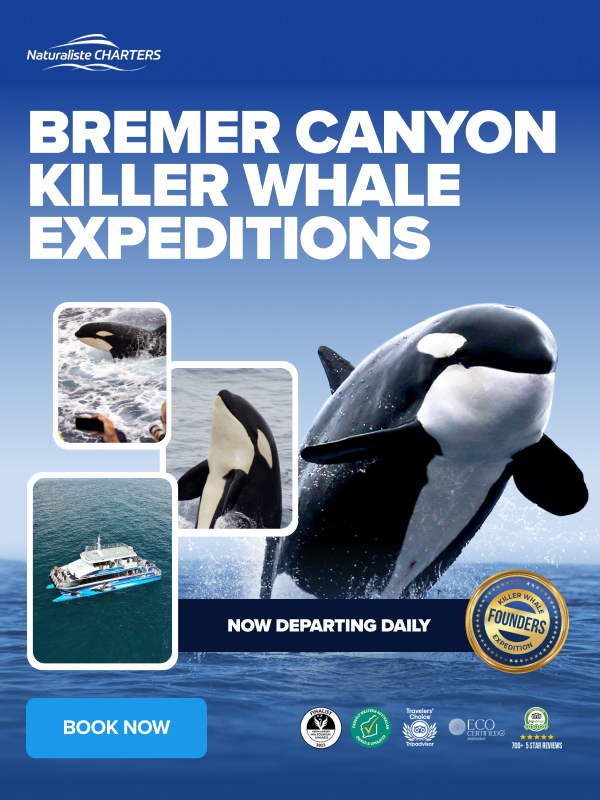Another spectacular day on board our vessel Alison-Maree in Flinders Bay, Augusta. Our morning tour began slowly with a cheeky shy whale but rapidly changed pace when another more boisterous whale began breaching off the horizon. Breach after breach this whale must have been itchy and trying to scratch the itch! Between breaches the barnacle covered whale was pectoral slapping on both left and right sides proving to us that humpbacks really do have the largest pectoral fins of all the whales.
The clouds rolled through by lunchtime but this didn’t deter the whales. The afternoon tour got mugged! And by mugged we mean the whale would not leave us alone!! So we just idled as this big female rolled around and popped up on both sides of our boat and on our bow. As the girthy female lolled about in the swell she was accompanied by a small pod of common dolphins! Just like yesterday the dolphin-whale combo moved as if they were long lost friends, surging and surfing the waves being intertwined as if performing a cetacean dance. The time must have flown by while we watched as before we knew it, it was time to head home. What a day! We hope the last two days are a hint as to how the rest of the season will play out. These whales are not to be missed! See you in Augusta.

